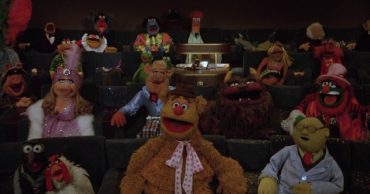
Going all out in his portrayal of the Joker, an aggrieved clown with severe mental health issues, Joaquin Phoenix is widely seen as the frontrunner for the Best Actor Oscar next month at the Academy Awards. His performance as the beloved comic book character, only eleven years after Heath Ledger won Best Supporting Actor for playing the same role, netted the film over $1 billion at the box office, inspired a premature moral panic and hit the zeitgeist concerning mental health issues.
Given that the erratic and idiosyncratic star, now in his mid-40s, has been acting ever since SpaceCamp in 1986, many see his inevitable win here as something of a legacy award. Nobody in Hollywood has straddled between the arthouse and the mainstream in as fascinating a fashion as Phoenix, whose moody performances – portraying deeply complex and broken men – are able to shift a film’s entire centre of gravity. Now with Joker, easily his most iconic role yet, at least in terms of cultural conversation, Phoenix gives one of the best showcases of his physical ability in inhabiting a character and intellectual prowess in bringing across his inner mental toil.
The issue with Todd Phillips’ Joker is the way it cannot harness Phoenix’s power to find something truly insightful to say, weakly remaking Martin Scorsese’s The King of Comedy instead of forging a braver path into the unknown. It shows that great performances aren’t necessarily the most showy or the most provocative. They can be subtle, enigmatic, full of strange surprises, working better when the film truly finds a way to situate them within a meaningful context. Across an extremely broad filmography, Phoenix has shown what he can bring with the right director in charge. In this spirit, we have named five performances that we think are better than Joker. Read on below.
The Master
The Master sees Joaquin Phoenix play Freddie Quell, a post WW2 wreck fruitlessly searching for meaning in his life. This loneliness is exacerbated by Paul Thomas Anderson’s epic 65mm photography, seeing Quell as a man overwhelmed by the world around him. He finds meaning in The Cause, run by Philip Seymour Hoffmann playing a version of Scientology’s L. Ron Hubbard. He soon rises into a major player in the cult; demonstrating in the process how these movements can prey upon the vulnerable.
The Master is a difficult film: critics still disagree over what the film is actually about. Yet despite this ambiguity, it weaves a pulsating, gripping spell, testament to the way Phoenix can hold the audience’s interest irregardless of any key central message. It’s a quality he would bring to Joker, but with more mixed results due to Philips’ looser grip on the material.
Her
A true depiction of the way we live now, Her could easily have descended into high-concept comedy. After all, the premise is deceptively simple: a man falls in love with his AI device, surely material for comic hi-jinks and misunderstandings? Instead Phoenix brings acres of sensitivity to his portrayal of Theodore Twombly, a deeply depressed man who writes personal letters for a living given a second chance in life when he buys a virtual assistant named Samantha.
True vulnerability is harder to portray than it looks, but Phoenix manages to really get us inside the mental headspace of our central character, making his infatuation with a robot feel both believable and remarkably tender. While other actors might have pushed too far towards mawkishness or comedy, Phoenix strikes a balance that easily holds the audience’s interest throughout.
Gladiator
Joker is a modern antihero for our times; reflecting both the rising interest in men’s mental health and the incel movement. Yet Phoenix can also play outright villains better than almost anyone, his portrayal of Commodus a true masterclass in treachery and odiousness.
The swords n’ sandals genre was more or less dead before Gladiator came along and won Best Picture. While admittedly the movie belongs to Russell Crowe, the hero meets his match and then some in Commodus – Phoenix evoking the self-absorbed Roman emperors of lore while putting his own characteristic spin on the material. Without a villain to match Maximus Decimus Meridius, Gladiator would hardly have been as memorable, Phoenix’s portrayal of pure evil as entertaining to watch as it is spine-chilling.
Irrational Man
When it comes to writing men, Woody Allen often writes them as if they were himself. Some try too hard to be Woody Allen himself (see Timothée Chalamet in Rainy Day in New York) thus dragging his late-period movies into complete parody. Joaquin Phoenix however, avoids this common pitfall by imbuing philosophy professor Abe Lucas with his own unique spirit.
At first glance, it is another typical Phoenix performance, playing a man enduring an existential crisis and finding no meaning to life. This is given a different spin by the moral choice he faces – suddenly realising that he can get away with murder, thus filling his life with purpose! Phoenix jumps between total depression and elation with absolute ease, showing the range that the actor can have within the same film, paving the way to portraying the contradictory elements of the Joker himself.
You Were Never Really Here
Possibly a career-best performance from Joaquin Phoenix here, You Were Never Really Here sees him play a metaphorical angel of death; an angry man with a hammer tasked with rescuing trafficked girls. Suffering both from PTSD and a penchant for severe violence, it is a subtle and moving depiction of mental health issues wrapped within a beautiful and deeply moving revenge thriller.
In many ways this is the pre-Joker performance; tackling many of the same issues of masculinity, violence and depression. The rawness of Phoenix’s performance here is far more accomplished however, told within a lean 90-minute format as opposed to Joker’s two hours. It’s even safe to say that when the dust settles and people look back at Phoenix’s career, You Were Never Really Here will be remembered as the more mesmerising and impactful role.
 Follow Us
Follow Us





